The parallels between Albert Camus's 'The Plague' and London’s growing problem with knife crime
When Andy Martin visited a theatre in east London this week, he didn’t expect to be thrown into the middle of a violent scene in real life. He ponders whether the play he went to see can restore solidarity to the streets
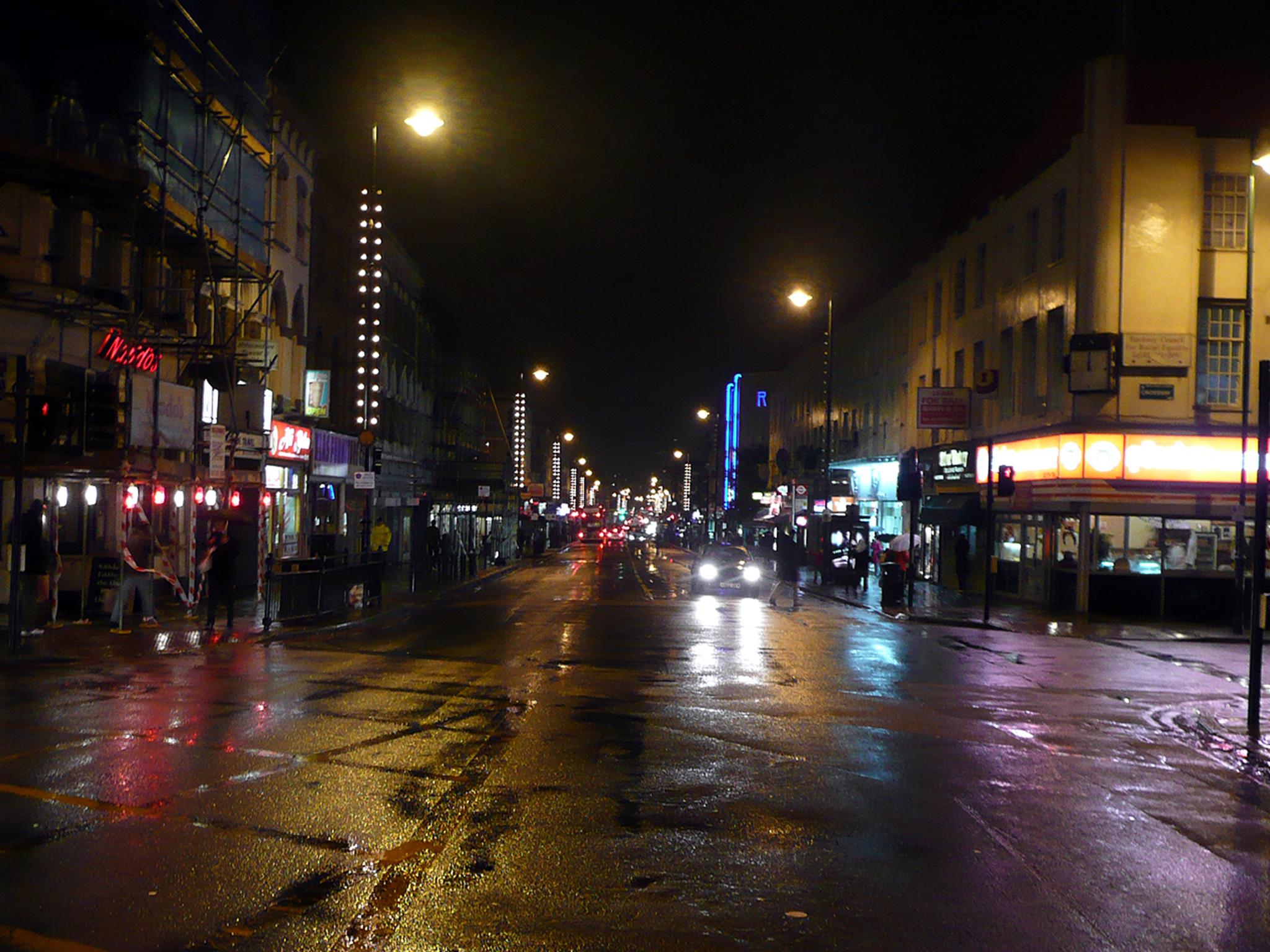
Your support helps us to tell the story
From reproductive rights to climate change to Big Tech, The Independent is on the ground when the story is developing. Whether it's investigating the financials of Elon Musk's pro-Trump PAC or producing our latest documentary, 'The A Word', which shines a light on the American women fighting for reproductive rights, we know how important it is to parse out the facts from the messaging.
At such a critical moment in US history, we need reporters on the ground. Your donation allows us to keep sending journalists to speak to both sides of the story.
The Independent is trusted by Americans across the entire political spectrum. And unlike many other quality news outlets, we choose not to lock Americans out of our reporting and analysis with paywalls. We believe quality journalism should be available to everyone, paid for by those who can afford it.
Your support makes all the difference.I kind of hate to cry. So I had just about managed to stop sobbing. But as I came reeling out of the theatre in London, I was still overwhelmed by the dramatisation of violence on stage. And I walked out into the street and ran right into real, ugly, seriously life-threatening violence offstage. I had been to see The Plague, the adaptation of the classic novel about humanity and inhumanity by Albert Camus and then I came out and found myself bang in the middle of the plague of knife crime that is currently afflicting London (and, to be fair, probably many other cities around the world).
The Plague was first published in 1947 and chronicles a bubonic plague and an infestation of rats affecting a small town which has to be quarantined. But it is an allegory of genocide and in part a reflection on Camus’s own experience of the Second World War. The closing lines were still ringing in my ears as I left the theatre: there are fireworks and singing and dancing in the streets at the end of The Plague, but “as I listened to the celebrations,” says Dr Rieux. “I thought, ‘Joy is always under threat’. I thought about what the crowds were choosing to ignore – and it’s something anyone can look up, if they want to – which is that the plague bacillus never actually dies. It never disappears – not entirely. It can lie dormant for generations in somebody's furnishings or bed sheets; can bide its time in living rooms, in basements, in suitcases... In bank statements.. Until one day – for the misfortune of mankind, or for its instruction perhaps, it once more rouses its rats and sends them forth to die in some unsuspecting city.”
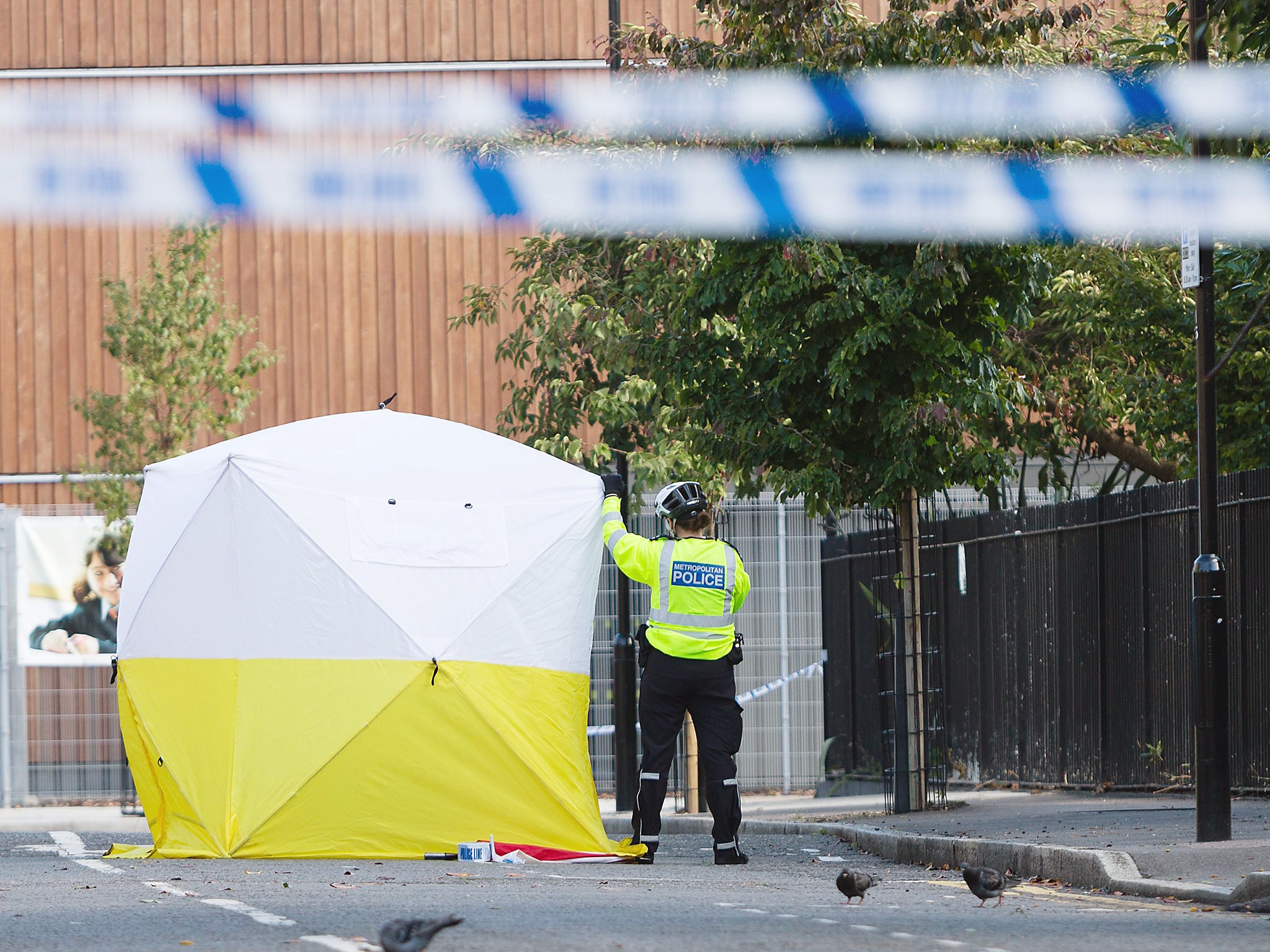
Which is when I heard the racket outside. The weird thing is that I hardly took any notice of the real violence. I didn’t take it seriously. I was walking along Ashwin Street towards Dalston Junction when I heard raised voices, shouting, an indeterminate ruckus somewhere behind me. I was in a small group of four and we exchanged looks but thought it was just the normal post-theatre hubbub. The usual singing and dancing. Nothing out of the ordinary. So we carried on towards the Overground, rather like the people in the play who choose to turn a blind eye to the plague. It turned out that, in fact, a young man, aged 17, was right then being stabbed by a number of assailants in, according to reports, “a gang-related incident”. An eye-witness shopkeeper in Dalston Lane said, “About ten of them ran up the street. I heard a glass bottle smashing and then there was shouting, screaming. They were just kids, it’s madness.”
There was blood on the streets of London. Emergency vehicles swooped and the area was cordoned off and detectives combed Dalston looking for evidence. In the play Dr Rieux is the main narrator and saviour figure (of sorts). In reality, the victim was taken to a London hospital where he was initially described as “critical” but after treatment had become “stable”.
So all this happened right outside the wonderful Arcola Theatre in Dalston. The play has rightly received rave reviews. It’s a brilliant, spare, minimalist adaptation of the original, brought right up to date, with well-judged subtractions and additions (for example, the “bank statement” line above is not in the original, I checked, although you could argue it’s a reasonable interpretation of “paperasses”). But I want to stress one thing: the plague outside has nothing specifically to do with Dalston or Ashwin Street or the Arcola Theatre. These are not mean streets. I was born in the East End. For good or ill, I support West Ham United. My two sons live in Hackney and work in Haggerston, which is just next door. The whole neighbourhood is completely disarming and the theatre is a gem. I am as shocked and dismayed as anyone that gang violence can erupt right here on my doorstep. I feel exactly like Dr Ben Todd, the director of the theatre, who nicely wrote to me (as he wrote to others who bought tickets online) to apologise and to reassure and to say that “Regrettably, several similar cases have been reported across London in recent weeks. We will be doing everything we can to cooperate with the Metropolitan Police investigation, and to ensure that the area around Arcola remains a safe and secure environment.”
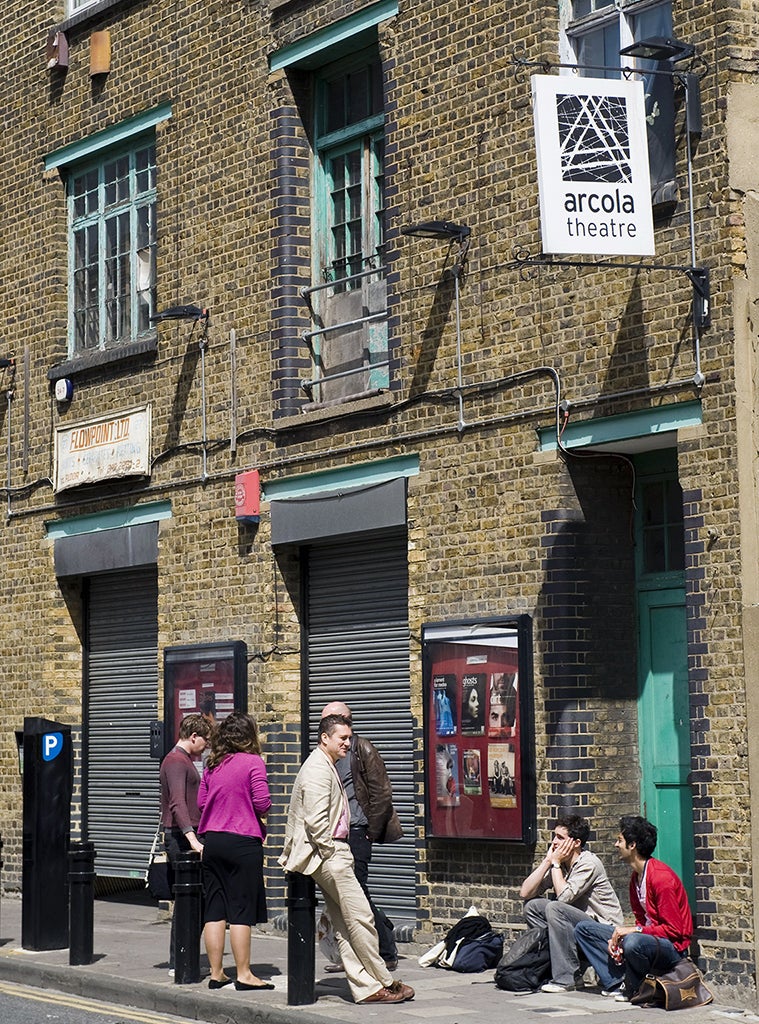
According to recent Metropolitan Police figures, gun crime in the capital has gone up 42 per cent; knife crime 24 per cent. The theatre itself was just unlucky to get caught up in the crime wave. The Arcola has aspirations to become the world’s first carbon-neutral theatre. Vegetarian and vegan food is served in the cafe-bar. In the bathroom, there is a sign saying, “You’re looking at an intelligent toilet” – the water you use to wash your hands is recycled in the loo. This part of London is diverse and tolerant, a model of everything a multi-ethnic cosmopolitan capital ought to be. For once the adjective “vibrant” is totally justified. It has a definite feel-good vibe. Generally.
In fact, not only has there been a high degree of gentrification going on around here, but there is even now a public consultation taking place on the future of Dalston and the “principles that should guide the development”. Hackney Council is planning a “Dalston Quarter”. I would suggest one thing: hold on to the Arcola – and Cafe Oto while we’re at it – and let’s have more theatre and live music. Camus for one would have approved.
Evil triumphs when good people turn a blind eye. Which, disturbingly enough, was more or less what I was doing as I strolled unperturbed up the street. Out of sheer obliviousness. I should have realised that The Plague is still tragically relevant. Right now. It is a literal plague, to some extent modelled on the Black Death of the early modern period (and specifically Daniel Defoe’s Journal of the Plague Year), with its arc of rising and finally falling casualty figures, but the point is that there are always other plagues waiting in the wings (Ebola springs to mind, and maybe bird flu, but these are only literal kinds of plague). The author’s own life and personal experiences are mirrored in The Plague too. Camus was born into poverty in a small town in French Algeria, a “pied noir”, white, and Catholic, mingling with the Arab and Berber population. He played football as a kid, goalkeeper mainly, and was talented (according to urban myth he played for Algeria – he didn’t) but had to drop out aged 17 on account of tuberculosis. Which didn’t stop him being a lifelong smoker. He took up literature and philosophy and the theatre as a substitute for football. After publishing his first novel, The Outsider in 1942, he found himself in Nazi occupied Paris where he met and became friends with the existentialist hell-is-other-people philosopher Jean-Paul Sartre, then fell out with him, possibly over a woman, possibly over communism (Sartre was in favour, Camus against). He was awarded the 1957 Nobel Prize in Literature. Then he died, James Dean-style, in 1960 – having just posted passionate love letters to four women on three separate continents – in a car crash on the road to Paris from Provence (probably a stupid accident, but some say engineered by the Soviets).
The Plague was his response to the Second World War, when he became the editor of Combat, the French Resistance newspaper, and himself narrowly escaped arrest by the Gestapo. The adaptation by Neil Bartlett, who also directs, references the “ovens” of the death camps. At some level the “plague” signified the Holocaust and the rise of Nazism. But not exclusively. Nor is it above all concerned with war. It is a timeless image of human suffering. In one sense it signifies death as the permanent and inevitable fate of every individual now alive. Children die in agony. The play dramatises how some choose to collude with the plague, to become collaborators, while others resist. Self-seeking materialism (notably in the figure of black marketeer Cottard, who ends up taking pot shots at passers-by) is counterpointed with the solidarity and heroism of the “Disinfection Squads”. I thought I detected in The Plague echoes or anticipations of Brexit, Trump, hate crime, the French election, and now the British election too. The play is a resonant, timeless argument or “agon”.
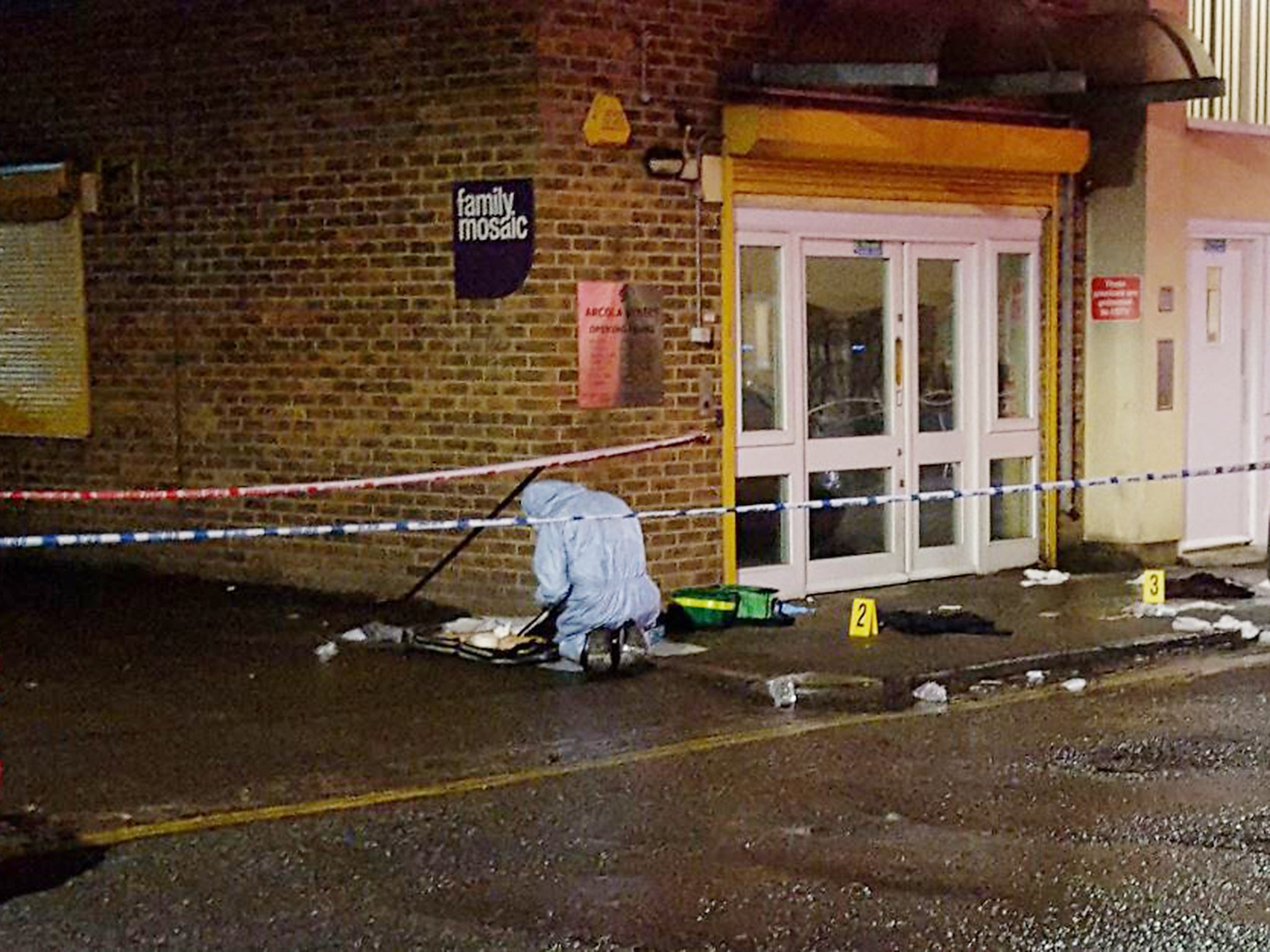
The “plague” also stands for what Camus called the “absurd”, the disjunction between reason and experience. In Albert Camus and the literature of revolt, John Cruickshank wrote that it stood for “man’s metaphysical dereliction”. When I once asked him what he meant by this, he told me about how he had married someone in Belfast even though he didn’t love her, simply because he didn’t want to let people down (and then divorced her later, after the partying had died down). A more extreme example of the absurd can be found in The Outsider when Meursault (the protagonist) shoots an anonymous Arab on the beach, for no good reason, “because of the sun”. And perhaps too because, briefly, he is possessed by the gang mentality of a pied noir coming up against an Arab. The Outsider (or The Stranger in the US) was based on a real fight that actually took place on a beach outside Oran back in 1939 (as Alice Kaplan has shown in her recent book Looking for the Stranger).
Despite which, Camus was a dedicated beach-lover and sun-worshipper and swimmer too when he had the chance and there is an inspirational speech from one of the characters in the play, Tarrou, about the joy of night swimming with a friend, finding peace and a sense of communion in the synchronicity of strokes. “You think about bathing in the sea – thick as velvet, supple and smooth as a wild animal. You think about swimming naked, and at night, with the stars, and a friend. Swim till you’re far from the world, and breathing together in the same rhythm, and free of absolutely everything.”
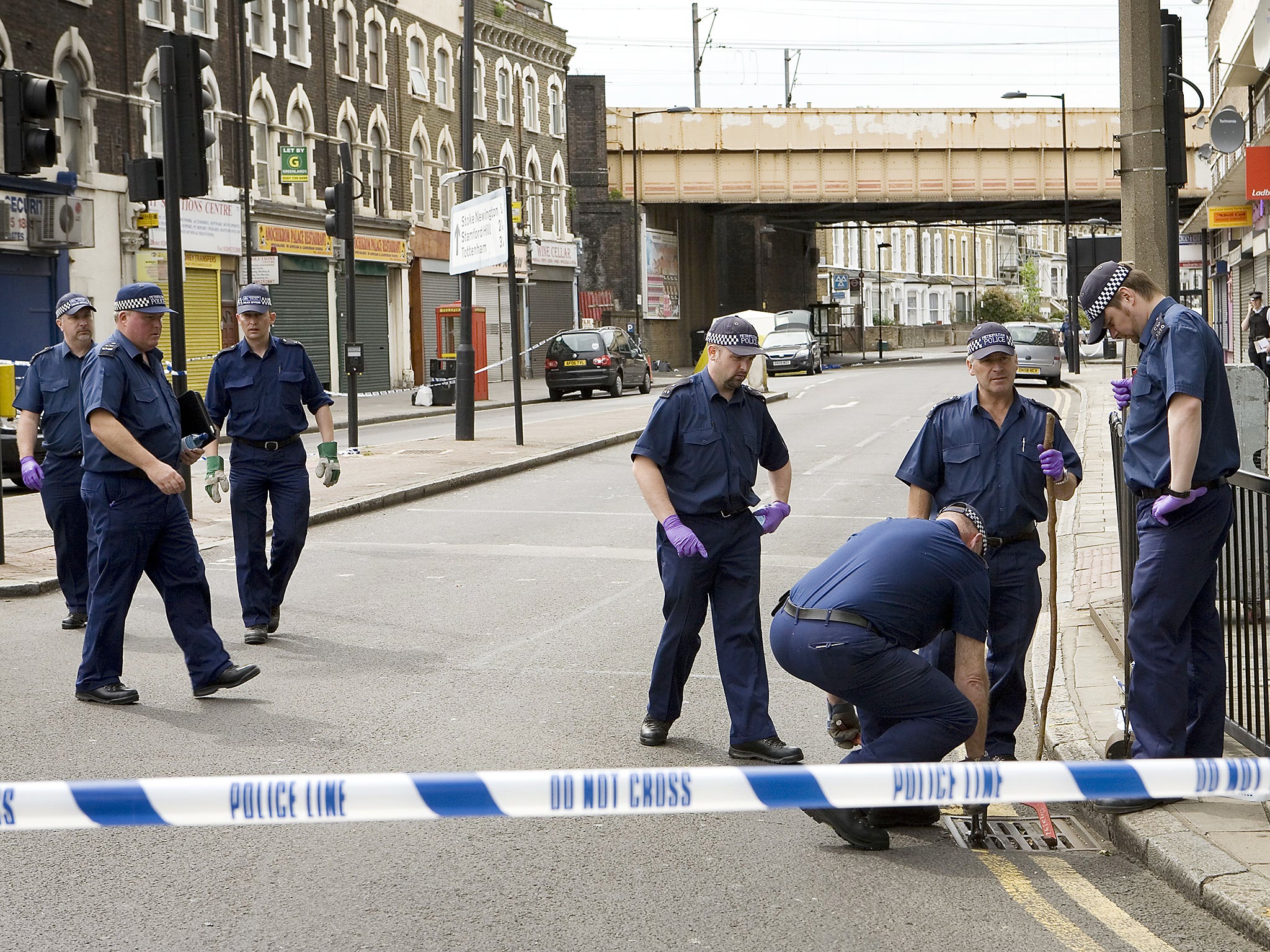
But violence, as Dalston discovered this week, is always a human potential. The gang is an example of the dark side of solidarity, driven more by hatred than by love, a streetwise twist on fascism, with its style obsession, codes and exclusivity. Language, Camus was aware, is eminently capable of driving conflict. One of his most appealing characters is Joseph Grand, who is in search of the perfect, most beautiful sentence, which always eludes him. His advice in the end is if you want to get at the facts, then omit adjectives altogether and call things by their “proper names”. Maybe nouns can keep evil at bay. Meanwhile, in the plague outside in the streets of London, Scotland Yard now has a “task force” to target and try to tackle knife crime. Camus might consider it an alternative form of solidarity, another kind of Disinfection Squad. In Camus there are a lot of rats, but there is always the possibility of hope too.
“Life,” as the play at the Arcola suggests, “is a plague.” But although it’s a fairly close call, Dr Rieux concludes that “There is more to admire about one’s fellow citizens than to despise or despair of.” This certainly applies, it seems to me, in Dalston as much as in post-Second World War France.
Andy Martin is the author of ‘Reacher Said Nothing: Lee Child and the Making of Make Me’ (Bantam Press, RRP £18.99). He teaches at Cambridge University. Follow him @andymartinink
Join our commenting forum
Join thought-provoking conversations, follow other Independent readers and see their replies
Comments